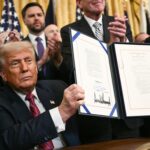In a diplomatic maneuver that caught many observers by surprise, Canadian Prime Minister Justin Trudeau has extended an invitation to Indian Prime Minister Narendra Modi for the upcoming G7 summit in Quebec. This unexpected outreach comes after months of severely strained relations between Ottawa and New Delhi, marking what could be a significant turning point in bilateral ties between the two nations.
The invitation, confirmed by Canadian officials yesterday, represents the first meaningful diplomatic overture since relations deteriorated dramatically last September. At that time, Trudeau made explosive allegations linking Indian government agents to the murder of Sikh separatist Hardeep Singh Nijjar on Canadian soil – accusations that New Delhi vehemently denied and dismissed as “absurd.”
“This invitation should be viewed as a calculated diplomatic reset,” explains Dr. Amrita Singh, international relations professor at the University of Toronto. “Both nations recognize that the prolonged standoff has been economically and strategically costly, particularly for Canada, which has been pushing for expanded trade opportunities in the Indo-Pacific region.”
The diplomatic fallout last year was swift and severe. India expelled six Canadian diplomats, suspended visa services for Canadian citizens, and demanded Canada reduce its diplomatic presence in India. Trade discussions were abruptly halted, dealing a significant blow to Canada’s Indo-Pacific Strategy, which had identified India as a crucial economic partner.
Economic data reveals the tangible costs of this diplomatic freeze. Bilateral trade, which had reached nearly $8.8 billion annually before the crisis, contracted by approximately 15% in the first quarter of 2024 compared to the same period last year. This decline has particularly affected Canadian agricultural exports and educational institutions, which have seen a sharp drop in Indian student enrollments.
Sources within Canada’s foreign ministry suggest the invitation comes after weeks of behind-the-scenes diplomatic efforts by both sides. “There’s been a recognition that the relationship is too important to let deteriorate further,” revealed a senior Canadian official speaking on condition of anonymity. “While fundamental disagreements remain, particularly regarding the Nijjar investigation, there’s a mutual interest in compartmentalizing these issues.”
The G7 summit, scheduled for June 8-10 in the Charlevoix region of Quebec, will bring together leaders from the world’s most advanced economies. The Canadian government has invited select non-member countries including India, signaling the strategic importance Ottawa places on engagement with New Delhi despite recent tensions.
India’s response to the invitation remains measured. An Indian foreign ministry spokesperson acknowledged receipt of the invitation but indicated that “attendance decisions will be made based on schedule compatibility and agenda relevance,” stopping short of confirming Modi’s participation.
For Trudeau, this diplomatic initiative carries significant political implications. His handling of the India relationship has faced criticism from opposition parties and business groups, who have argued that the government’s approach jeopardized important economic ties without sufficient evidence to support its serious allegations.
“This is Trudeau attempting to salvage what has become a diplomatic and economic liability,” notes Richard Thompson, senior fellow at the Canadian Institute for Global Affairs. “The challenge will be finding a way forward that doesn’t appear to compromise Canada’s stance on the original allegations while still rebuilding the relationship.”
If Modi accepts the invitation, it would mark the first face-to-face meeting between the two leaders since their brief, visibly tense encounter at the G20 summit in Delhi last September, just days before the relationship imploded.
As both nations cautiously navigate this potential diplomatic thaw, the fundamental question remains: Can Canada and India rebuild meaningful cooperation while the unresolved murder investigation continues to cast a shadow over bilateral relations?

























